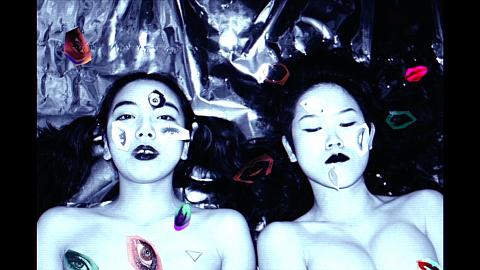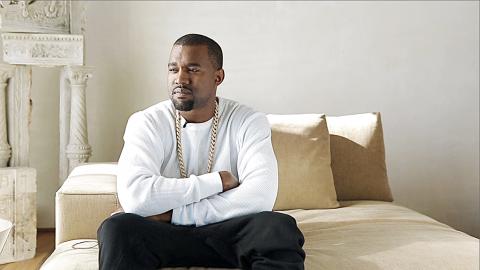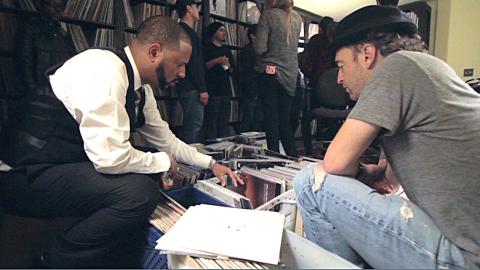David Frazier and Sean Scanlan, two long-term expats and journalists, were a bit miffed when Huashan 1914 Creative Park (華山1914) excluded Urban Nomad, the indie film festival they started, as part of this year’s programming. The co-founders say they have good reason to be annoyed because they’ve held the festival at Huashan for 10 of the past 12 years that it’s been running.
“We have brought thousands of people to Huashan and are maybe the only event that has made the transition from the squatter artist exhibitions of Huashan’s early days to its new cultural industries era,” Frazier said.
He added that though it seems the festival is no longer a priority, “getting angry at bureaucracies is counter-productive.”

Photo courtesy of Urban Nomad
“This is mainly just indicative of Taiwan’s cultural industries push, which is mainly supporting events marketing groups that know how to get government money and gobble up resources. Not many people in the system really care about quality events or programming,” he said.
Whenever there is darkness in a tunnel, though, there is always a ray of hope, and this year, Urban Nomad’s shining beacon was Lux Cinemas in Ximending, one of Taipei’s poshest theaters.
“The weirdness of the whole thing is that two years ago we were showing indie documentaries in a warehouse, and now we are in one of Taipei’s premier commercial cinemas, vying for screen space with Spider Man and Godzilla. Maybe it’s an exercise in guerilla commercialism,” Frazier quipped.

Photo courtesy of Urban Nomad
Stones throw records
One of the movies getting a lot of global attention is Jeff Broadway’s latest feature, Our Vinyl Weighs a Ton (showing Sunday at 9:15pm and May 15 at 6pm), a documentary about the underground hip-hop label, Stones Throw Records.
In Our Vinyl Weighs a Ton, hip-hoppers and celebrities such as Mike D from the Beastie Boys, Questlove, Snoop Dogg, Common and Kanye West pay tribute to Peanut Butter Wolf and the work he has done to make Stones Throw Records one of the most original labels on the music scene.

Photo courtesy of Urban Nomad
“My experience with Kanye was totally normal. He was very polite, turned off his phone, didn’t take any e-mails and didn’t have any assistants hanging around him. He was fully dedicated to the interview,” Broadway said in an e-mail interview.
“When the interview finished he asked me and my guys if we wanted to hear any of his new music, and we went and sat in his dining room as he performed almost all of Yeezus to us,” he said.
Broadway has ties to Taiwan that date back to his university days, when he was living with two Taiwanese who piqued his interest in the “political peculiarity that is Taiwan.” It was an interest that led him to film the documentary about the country called Godspeed Taiwan.

Photo courtesy of Urban Nomad
“I love Taiwan, I really enjoyed my time there, and am disappointed that I couldn’t come back with Our Vinyl Weighs a Ton,” he said.
Opening party
Urban Nomad always starts with a big blowout and this year is no different. Group A from Japan will be headlining and their performance is sure to remind the audience of the mind and genre-bending show that Trippple Nippples gave two years ago, where paint, partial nudity and general eccentricity left people scratching their heads.
This year’s party will be held at Fenghuang Night Club (鳳凰大歌廳) and hosted by Xiao-ying (real name Ying Wei-min, 應蔚民), lead singer of The Clippers (夾子電動大樂隊). He will be joined by Funky Brothers, DJ @llen, Kid Millionaire, DJ Sonia from the Bounce Girlz and (full disclosure) Marcus Aurelius.
Urban Nomad Opening party is Saturday night from 8pm to 4am at Fenghuang Night Club (鳳凰大歌廳) 5F, 159 Xining S Rd, Taipei City (台北市西寧南路159號5樓). Presale tickets are NT$700 and can be purchased at www.indievox.com. Admission at the door is NT$900. All tickets come with one drink.

April 14 to April 20 In March 1947, Sising Katadrepan urged the government to drop the “high mountain people” (高山族) designation for Indigenous Taiwanese and refer to them as “Taiwan people” (台灣族). He considered the term derogatory, arguing that it made them sound like animals. The Taiwan Provincial Government agreed to stop using the term, stating that Indigenous Taiwanese suffered all sorts of discrimination and oppression under the Japanese and were forced to live in the mountains as outsiders to society. Now, under the new regime, they would be seen as equals, thus they should be henceforth

Last week, the the National Immigration Agency (NIA) told the legislature that more than 10,000 naturalized Taiwanese citizens from the People’s Republic of China (PRC) risked having their citizenship revoked if they failed to provide proof that they had renounced their Chinese household registration within the next three months. Renunciation is required under the Act Governing Relations Between the People of the Taiwan Area and the Mainland Area (臺灣地區與大陸地區人民關係條例), as amended in 2004, though it was only a legal requirement after 2000. Prior to that, it had been only an administrative requirement since the Nationality Act (國籍法) was established in

With over 80 works on display, this is Louise Bourgeois’ first solo show in Taiwan. Visitors are invited to traverse her world of love and hate, vengeance and acceptance, trauma and reconciliation. Dominating the entrance, the nine-foot-tall Crouching Spider (2003) greets visitors. The creature looms behind the glass facade, symbolic protector and gatekeeper to the intimate journey ahead. Bourgeois, best known for her giant spider sculptures, is one of the most influential artist of the twentieth century. Blending vulnerability and defiance through themes of sexuality, trauma and identity, her work reshaped the landscape of contemporary art with fearless honesty. “People are influenced by

The remains of this Japanese-era trail designed to protect the camphor industry make for a scenic day-hike, a fascinating overnight hike or a challenging multi-day adventure Maolin District (茂林) in Kaohsiung is well known for beautiful roadside scenery, waterfalls, the annual butterfly migration and indigenous culture. A lesser known but worthwhile destination here lies along the very top of the valley: the Liugui Security Path (六龜警備道). This relic of the Japanese era once isolated the Maolin valley from the outside world but now serves to draw tourists in. The path originally ran for about 50km, but not all of this trail is still easily walkable. The nicest section for a simple day hike is the heavily trafficked southern section above Maolin and Wanshan (萬山) villages. Remains of